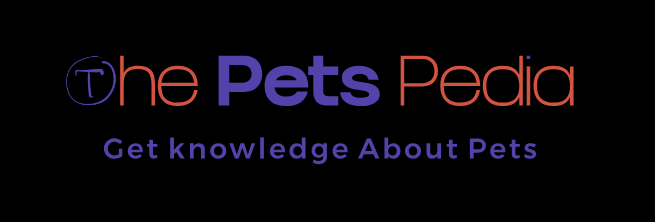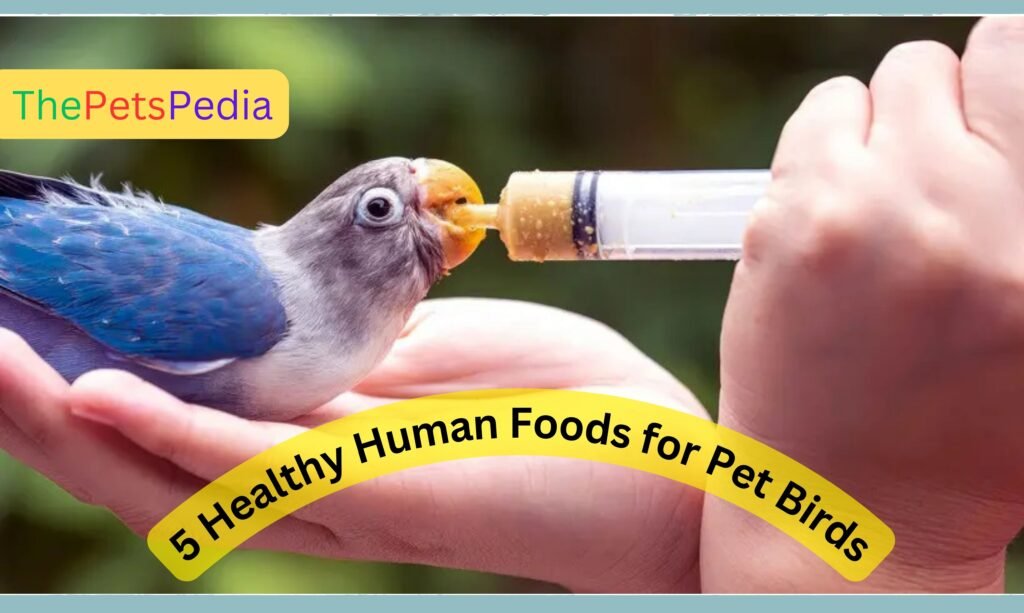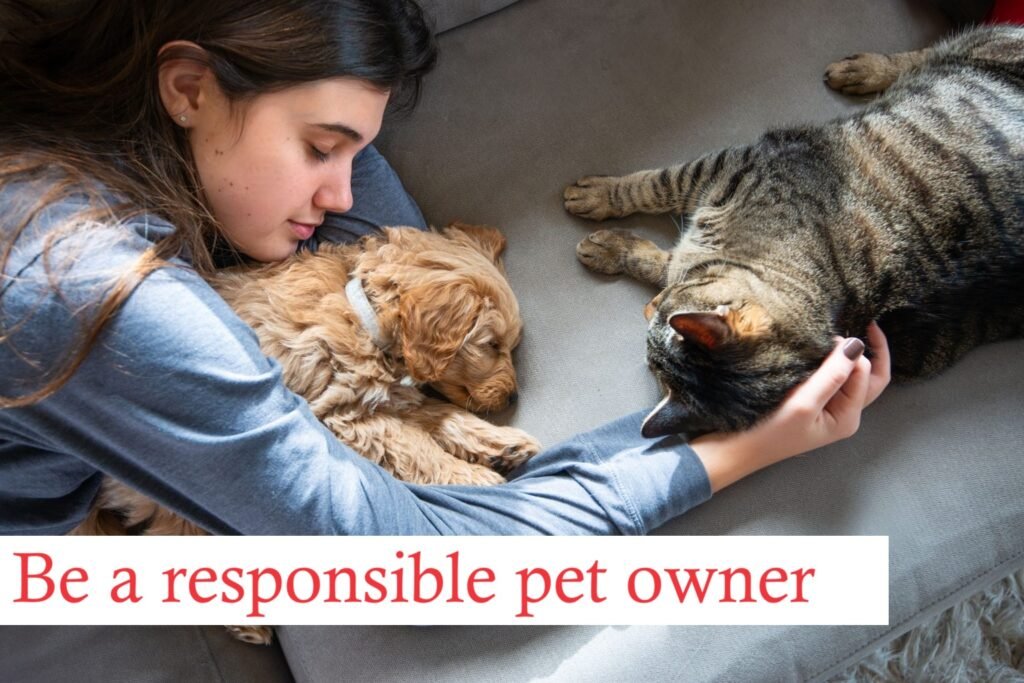As a bird owner, you might wonder about healthy human foods for pet birds. Birds are curious creatures, and they often enjoy trying new flavors. However, not all human foods are safe for them. Some can even be harmful or toxic. It’s essential to ensure that the foods you offer provide the right nutrients without risking your bird’s health.
This guide will explore which human foods are safe for birds, how much you should feed them, and how to introduce these foods into their diet. We’ll also include expert advice to help you keep your bird’s nutrition balanced and healthy, tailored to your bird’s specific needs.
Why a Balanced Diet is Important for Pet Birds
Like humans, birds need a balanced diet to stay healthy. Feeding the same food every day can lead to boredom and nutritional deficiencies. By offering a mix of human foods for pet birds—such as fruits, vegetables, grains, and proteins—you can help keep your bird active and healthy.
Dr. Laurie Hess, an avian vet, explains, “Birds that eat only seeds often face nutritional problems. Adding fresh, bird-safe human foods like fruits and vegetables can help avoid these issues.” However, it’s important to adjust the diet based on your bird’s species, as their nutritional needs can vary.
Safe and Healthy Human Foods for Pet Birds
1. Fruits
Fruits are packed with vitamins and minerals, but they should be given in moderation because of their sugar content. Fruits should make up about 10-15% of your bird’s diet, providing essential vitamins like Vitamin C and fiber to support the immune system and digestion.
| Fruit Type | Vitamin C (mg/100g) | Fiber (g/100g) | Sugar (g/100g) |
| Apple (no seeds) | 4.6 | 2.4 | 10.4 |
| Banana | 8.7 | 2.6 | 12.2 |
| Blueberries | 9.7 | 2.4 | 9.7 |
| Kiwi | 92.7 | 3.0 | 9.0 |
| Papaya | 60.9 | 1.7 | 5.9 |
| Mango | 36.4 | 1.6 | 14.8 |
Expert Tip:
Dr. Margaret Wissman advises, “Birds love sweet fruits, but you should remove seeds from fruits like apples and avoid overfeeding high-sugar fruits such as mangoes and bananas.”
Recommendation: Offer small pieces of fruit daily, but do not exceed 15% of your bird’s total diet. Remove uneaten fruits after a few hours to prevent spoilage.
2. Vegetables
Vegetables are vital for a bird’s diet and should comprise 20-30% of their daily food intake. Dark leafy greens and colorful vegetables provide essential vitamins, minerals, and fiber. However, washing them thoroughly is important to remove any pesticide residues.
| Vegetable Type | Vitamin A (IU/100g) | Fiber (g/100g) | Calcium (mg/100g) |
| Spinach | 9,377 | 2.2 | 99 |
| Broccoli | 623 | 2.6 | 47 |
| Carrot (grated) | 16,706 | 2.8 | 33 |
| Zucchini | 200 | 1.1 | 16 |
| Sweet potato (cooked) | 19,218 | 3.0 | 30 |
Expert Suggestion:
Dr. Karen Becker recommends, “Feeding a variety of colorful vegetables helps ensure your bird gets a broad range of nutrients. Be sure to wash them well or use organic produce to avoid harmful pesticides.”
Recommendation: Provide different vegetables daily, but be cautious with high-oxalate greens like spinach, which can interfere with calcium absorption. Moderation is key. Offer low-oxalate greens like kale to maintain balance.
3. Grains
Whole grains provide energy and fiber, and they should make up about 10-15% of your bird’s diet. Cooking grains without salt or oil ensures they are safe for birds to eat.
| Grain Type | Protein (g/100g) | Fiber (g/100g) | Carbohydrates (g/100g) |
| Brown Rice (cooked) | 2.6 | 1.8 | 23.5 |
| Oats (cooked) | 2.4 | 2.5 | 12.0 |
| Quinoa (cooked) | 4.1 | 2.8 | 21.3 |
| Whole Wheat Pasta | 5.7 | 3.2 | 30.0 |
Recommendation: Serve small portions of grains a few times a week. Ensure your bird always has fresh water when eating grains to avoid dehydration. Remove uneaten grains after a couple of hours to prevent spoilage.
4. Proteins
Proteins help repair tissues and support overall health. Birds do not need a lot of protein, and their requirements vary by species. For instance, parrots may need more protein than smaller birds like finches.
| Protein Type | Protein (g/100g) | Fat (g/100g) | Cholesterol (mg/100g) |
| Cooked Egg (scrambled) | 13 | 10.0 | 373 |
| Lentils (cooked) | 9.0 | 0.4 | 0 |
| Tofu (firm) | 8.0 | 4.8 | 0 |
| Chicken (cooked) | 31.0 | 3.6 | 85 |
Expert Advice:
Dr. Hess warns, “While birds need some protein, overfeeding it can be harmful, especially for species that don’t require much protein.”
Recommendation: Offer protein-rich foods like eggs or lentils once or twice a week, depending on your bird’s species and size. Always remove uneaten protein after a couple of hours to avoid bacterial growth.
5. Nuts & Seeds
Nuts and seeds are high in fat and should be given sparingly, especially to obese birds. However, birds like macaws, which require more fat, can eat nuts more frequently.
| Nut/Seed Type | Fat (g/100g) | Protein (g/100g) | Calories (kcal/100g) |
| Almonds | 50.0 | 21.2 | 579 |
| Walnuts | 65.0 | 15.0 | 654 |
| Pumpkin Seeds | 19.0 | 30.2 | 559 |
| Sunflower Seeds | 49.0 | 21.0 | 584 |
Recommendation: Limit nuts and seeds to no more than 5% of your bird’s diet unless your bird species naturally requires more fat, such as macaws. Use them as occasional treats and monitor your bird’s weight.
Foods to Avoid for Pet Birds
Some human foods are dangerous or toxic to birds. Here are some foods to avoid:
| Food Type | Reason for Avoidance |
| Avocado | Contains persin, which can cause respiratory failure in birds. |
| Chocolate | Contains theobromine and caffeine, which can cause seizures and heart issues. |
| Onions & Garlic | Can damage red blood cells and cause anemia. |
| Alcohol | Toxic to the bird’s nervous system and can lead to death. |
| Salt | Too much salt can harm the kidneys and cause serious health problems. |
| Raw Beans | Contains hemagglutinin, which is toxic if uncooked. |
| Fruit Pits | Contains cyanide, which is poisonous to birds. |
| Moldy Food | Mycotoxins from mold can cause severe illness in birds. |
How to Introduce Healthy Human Foods to Pet Birds
Introducing healthy human foods for pet birds should be done gradually. Birds are cautious eaters and might not try new foods right away. Here’s how to do it safely:
- Start Slowly: Offer small pieces of new food and observe how your bird reacts.
- Cut Food into Small Pieces: Ensure the food is in small, manageable pieces to prevent choking.
- Serve Fresh: Remove uneaten food after a few hours to avoid spoilage and bacterial growth.
- Avoid Seasonings: Never add salt, sugar, or spices to your bird’s food.
Conclusion
Offering a variety of healthy human foods for pet birds can help maintain a balanced and nutritious diet. Include bird-safe fruits, vegetables, grains, and small amounts of protein to ensure your bird stays healthy and happy.
Make sure harmful or toxic foods are avoided, and introduce new foods gradually. With proper care and attention, your feathered friend can enjoy a safe and nutritious diet, tailored to their needs.



